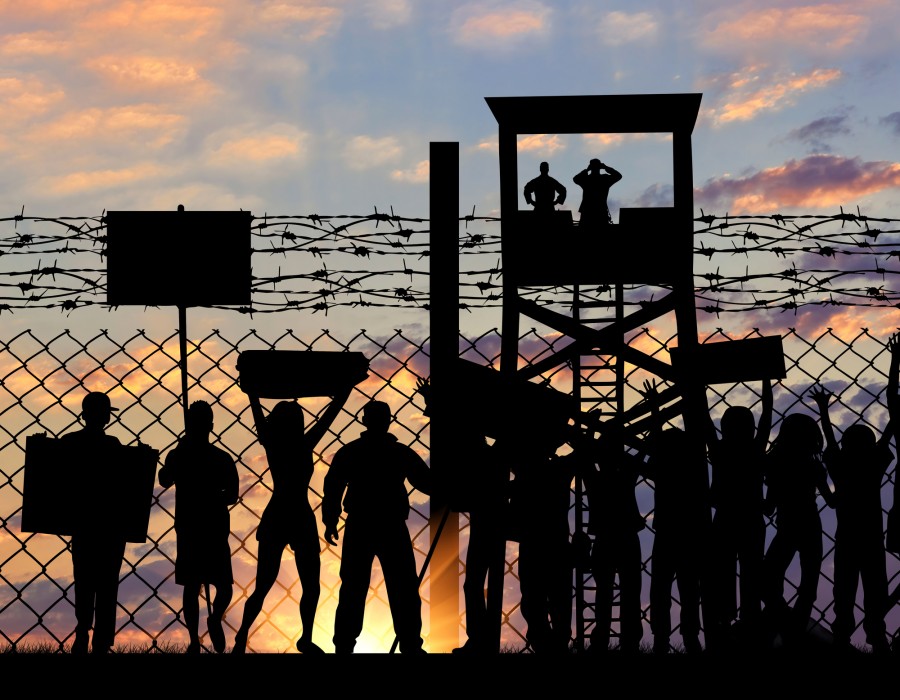The 8 Main Reasons for War
Updated on May 29, 2017
Since completing university, Paul Goodman has worked as a bookseller; librarian; and freelance writer. Born in the UK, he now lives in Florida.
Up until the late 19th century, wars used to be fought almost exclusively as a series of set piece battles. Modern technology and other trends, such as asymmetric warfare have changed how wars are fought.
Wars have been a part of human history for thousands of years, becoming increasingly destructive with industrialization and the subsequent advances in technology.
Typically a war is fought by a country, or group of countries, against an opposing country with the aim of achieving an objective through the use of force.
Wars can also be fought within a country, however, in the form of a civil war, or in a revolutionary war.
Of course, the causes of a war beginning are often numerous and several reasons for war can be intertwined in a complicated way, rather than there being just one single, clear cause.
Many theories have been put forward over the years for why wars happen and some of the greatest minds have offered their ideas.
The 8 main reasons for war are listed below.
I hate war as only a soldier who has lived it can, only as one who has seen its brutality, its futility, its stupidity.
— Dwight D. Eisenhower
Despite the intense suffering caused, there seems to be no end in sight, as far as wars go. Violent conflict seems hard-wired into the human psyche, creating more danger as the weaponry becomes increasingly destructive
#1 Economic Gain
One country wishes to take control of another’s wealth. There are very often economic reasons underlying most conflicts, even if the stated aim of the war is publicly presented as something more noble.
In pre-industrial times, the gains sought might be precious materials such as gold and silver, or livestock such as cattle and horses.
In more modern times, the resources sought are more likely to take the form of things like oil, minerals, or materials used in manufacturing.
Some scientists believe that as the world’s population increases and basic resources become scarce, there will increasingly be wars fought over fundamental essentials such as water and food supplies.
War may sometimes be a necessary evil. But no matter how necessary, it is always an evil, never a good. We will not learn how to live together in peace by killing each other's children.
— Jimmy Carter
War has become increasingly mechanized over the years. In the 20th century it also became industrialized. A large scale conflict nowadays depends as much on economic output as what happens on the battlefield.
#2 Territorial Gain
A country might decide that it needs more land, either for living space, or for agricultural use, or for other purposes. Territory can also be used as “buffer zones” between two hostile enemies.
Related to buffer zones are proxy wars - these are conflicts effectively fought between opposing powers in a third country, not directly, but by supporting the side which best suits the supporters' interests, through logistical, military, or financially aid.
Proxy wars were particularly common during the Cold War.
To be prepared for war is one of the most effective means of preserving peace.
— George Washington
Suit of armor. This was the main form of protection for people in wars for many centuries. Nowadays, soldiers are more likely to use armored vehicles for protection when moving around the battlefield.
#3 Religion
Religious conflicts often have very deep roots. They can lie dormant for decades, only to re-emerge in a flash at a later date.
Religious wars can often be tied in with other reasons for conflict, such as nationalism, or seeking revenge for a perceived historical slight from the past.
As well as different religions fighting each other, different sects within a religion (for example, Protestant and Catholic, or Sunni and Shia) can fight each other.
There will one day spring from the brain of science a machine or force so fearful in its potentialities, so absolutely terrifying, that even man, the fighter, who will dare torture and death in order to inflict torture and death, will be appalled, and so abandon war forever.
— Thomas A. Edison
Modern warfare often takes place at a distance, with military forces rarely coming into direct physical contact. The recent introduction of drones has only increased the sense of physical and emotional distance.
#4 Nationalism
Nationalism in this context essentially means attempting to prove that your country is superior to another by violently subjugation – this often takes the form of an invasion.
Related to nationalism is imperialism. Imperialism is built on the idea that conquering other countries is glorious and brings honor and esteem to the conqueror.
Also linked to nationalism, can be racism, as happened with Hitler’s Germany, who went to war with Russia partly because the Russians (and East Europeans generally) were seen as Slavs, who the Nazis believed to be an inferior race.
There is no hunting like the hunting of man, and those who have hunted armed men long enough and liked it, never care for anything else thereafter.
— Ernest Hemingway
Most military groups have traditions, customs, special dress and awards that provide soldiers with recognition within a wider cultural framework.
#5 Revenge
Seeking to punish, redress a grievance, or simply just strike back for a perceived previous slight can often be a factor in wars.
Unfortunately, this can lead to an endless chain of retaliatory wars being set in motion, however, which becomes very difficult to stop.
Historically, this has been a factor in many European wars.
The time to take counsel of your fears is before you make an important battle decision. That's the time to listen to every fear you can imagine! When you have collected all the facts and fears and made your decision, turn off all your fears and go ahead!
— George S. Patton
#6 Civil War
These generally take place when there is sharp internal disagreement within a country over who rules, or how the country should be run, and the situation spills over into violent conflict between two or more opposing groups.
Civil Wars can also be sparked by separatist groups wanting to form their own, independent country, or, as in the United States, states wanting to secede from a larger union.
War is an ugly thing, but not the ugliest of things. The decayed and degraded state of moral and patriotic feeling which thinks that nothing is worth war is much worse.
— John Stuart Mill
The American Civil War saw the first signs of mechanized warfare, which would become more apparent with the onset of World War I later in Europe.
#7 Revolutionary War
These occur when a large section of the population of a country revolts against the individual or group that rules the country, because they are dissatisfied with their leadership.
Revolutions can begin for a variety of reasons, often economic hardship amongst certain sections of the population, or perceived injustices committed by the ruling group can play a strong part, but other factors can contribute, such as unpopular wars with other countries.
Revolutionary wars can easily descend into civil wars.
The most shocking fact about war is that its victims and its instruments are individual human beings, and that these individual beings are condemned by the monstrous conventions of politics to murder or be murdered in quarrels not their own.
— Aldous Huxley
Revolutionary wars are still commonplace around the world, often beginning with popular discontent and peaceful protests, but dissolving into violence. They can easily descend into civil wars.
#8 Defensive/Preemptive War
In the modern world, where military aggression is more widely questioned, countries will often argue that they are fighting in a purely defensive capacity against an aggressor, or potential aggressor, and that therefore their war is “just”.
These defensive wars can be especially controversial when they are launched preemptively, the argument essentially being that: “we are attacking them, before they attack us.”
It is well that war is so terrible, otherwise we should grow too fond of it.
— Robert E. Lee
- Abuse & The Abuser
- Achievement
- Activity, Fitness & Sport
- Aging & Maturity
- Altruism & Kindness
- Atrocities, Racism & Inequality
- Challenges & Pitfalls
- Choices & Decisions
- Communication Skills
- Crime & Punishment
- Dangerous Situations
- Dealing with Addictions
- Debatable Issues & Moral Questions
- Determination & Achievement
- Diet & Nutrition
- Employment & Career
- Ethical dilemmas
- Experience & Adventure
- Faith, Something to Believe in
- Fears & Phobias
- Friends & Acquaintances
- Habits. Good & Bad
- Honour & Respect
- Human Nature
- Image & Uniqueness
- Immediate Family Relations
- Influence & Negotiation
- Interdependence & Independence
- Life's Big Questions
- Love, Dating & Marriage
- Manners & Etiquette
- Money & Finances
- Moods & Emotions
- Other Beneficial Approaches
- Other Relationships
- Overall health
- Passions & Strengths
- Peace & Forgiveness
- Personal Change
- Personal Development
- Politics & Governance
- Positive & Negative Attitudes
- Rights & Freedom
- Self Harm & Self Sabotage
- Sexual Preferences
- Sexual Relations
- Sins
- Thanks & Gratitude
- The Legacy We Leave
- The Search for Happiness
- Time. Past, present & Future
- Today's World, Projecting Tomorrow
- Truth & Character
- Unattractive Qualities
- Wisdom & Knowledge






Comments